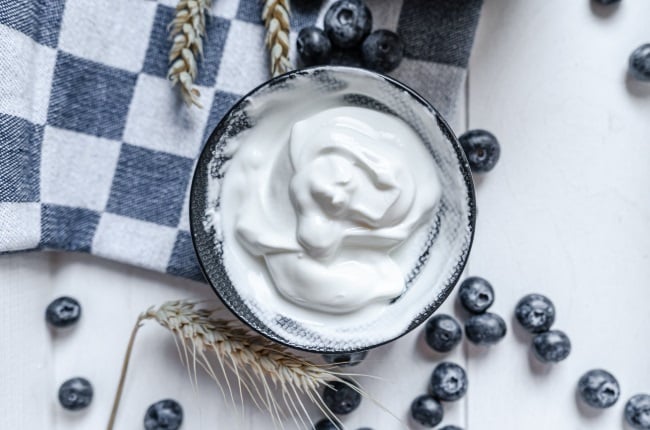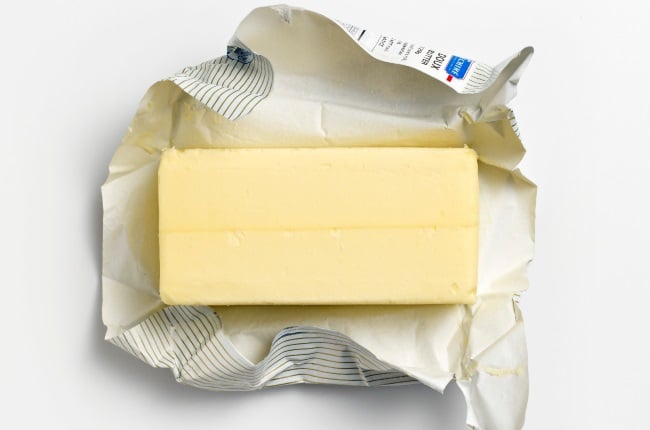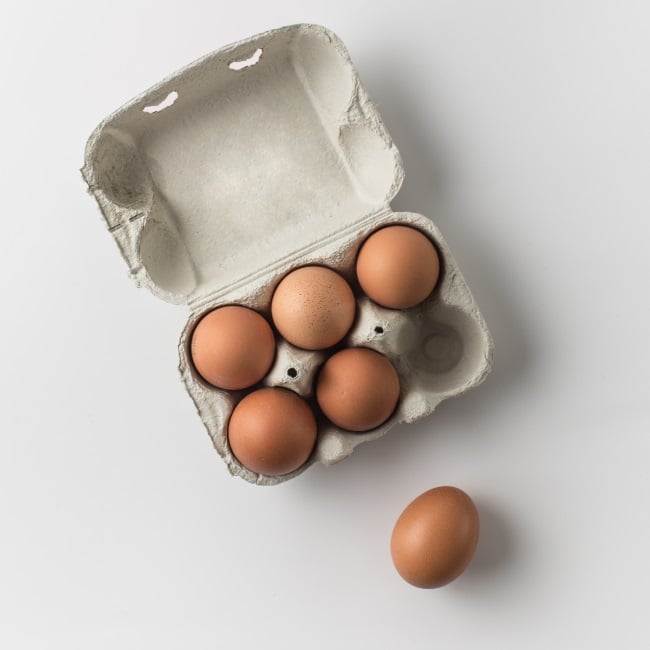
Are you confused about what to eat if you want to be healthy? It’s little wonder – nutrition science is constantly advancing and so the nutritional landscape is in a state of flux.
Here’s a look at the latest research. We ask health experts to help make sense of the hype and also give tips on top pantry tweaks you need to make today.
OLD FOOD RULE
Eat low-fat dairy to reduce saturated fat intake.
NEW FOOD RULE
Full-fat dairy is healthier, but eat less of it.
Experts are leaning back towards natural, full-fat dairy for optimal health as opposed to the low-fat milk, yoghurt and even cheese we were told to eat to avoid taking in too much saturated fat.
But saturated fat isn’t necessarily the bad guy, as studies have shown. Findings from a 16-year study by the Queensland Institute of Medical Research in Australia suggest that full-fat dairy might actually protect against heart disease or stroke.
“Fat is a great component of taste,” says Australian nutritionist Julie Maree Wood, author of The Complete Food Makeover.
“And when it’s taken out of dairy, especially yoghurt, it has to be replaced with sugar or worse, artificial sweeteners. And you’re better off eating a little bit of fat than either of those two.”
But it’s not an excuse to drink lots of full-fat milk or eat blocks of cheese. Everything in moderation, says Australian cardiologist Dr Ross Walker.
OLD FOOD RULE
Avoid butter and use margarine instead.
NEW FOOD RULE
Butter is better for you.
For decades dieticians told us the saturated fat found in butter, red meat and eggs is a one-way ticket to heart disease. A recent analysis of several studies published in the American Journal of Clinical Nutrition found no such association.
READ MORE| Swop out bad eating habits for these healthy recipes
Margarine, on the other hand, gets a bad rap. In her book What To Eat: Food That's Good for Your Health, Pocket and Plate, British food journalist Joanna Blythman, writes about how margarines and spreads made with hydrogenated fats are extremely bad for our health as the hydrogenation process creates artery clogging trans fats.
In comparison, butter is virtually unprocessed – and is also a good source of vitamin A and B12, delivers essential fatty acids and is thought to promote hormone production and better vision.
Butter is the best choice, agrees nutritionist Julie Maree Wood, but adds we now have more options. “We can now get butter blended with olive oil, which is good too.”
Cardiologist Dr Ross Walker is all for unprocessed options. “If you want to have butter, that’s fine,” he says. “It’s natural – just don’t smother your bread with it.”
Jozi! Mark your calendars for the ULTIMATE fitness party on August 19th! ?? Join us for incredible day filled with high-energy workouts led by top trainers, exhilarating dance sessions, and calming yoga sessions.
OLD FOOD RULE
Polyunsaturated vegetable oils are the healthiest.
NEW FOOD RULE
Avoid refined, processed polyunsaturated oils.
Polyunsaturated fats in their natural form – such as those found in oily fish and nuts – are beneficial, reducing blood pressure and heart disease.
But processed polyunsaturated vegetable oils, such as sunflower oil, should be avoided completely, advises food journalist Joanna Blythman.
“There’s evidence that high consumption of these oils can increase the risk of obesity, cancer, heart disease, stroke, diabetes and depression.”
Studies show that countries with a high consumption of such fats and oils, such as Israel, have much higher rates of these diseases compared to the French, who have more saturated fat in their diets.
Nutritionist Julie Maree Wood agrees. “Refined polyunsaturated oils do far more damage than a small amount of saturated fat. A lot of packaged foods use poor quality oils that do multi- system damage in the body.”
Go back to the source with oils, consuming good-quality, unrefined olive oil, butter, avocados, omega-3 fats found in fish and nuts, and coconut oil in moderation. Canola oil is higher in monounsaturated than polyunsaturated fat, but also contains a fair amount.
OLD FOOD RULE
Limit eggs because they raise cholesterol.
NEW FOOD RULE
Eggs are a complete food and it’s fine to eat an egg a day.
Eggs used to be viewed with suspicion because the yolk is high in cholesterol. But research has shown that eating foods with natural forms of cholesterol such as eggs doesn’t lead to heart disease.
“Eggs do have saturated fat and a bucket of cholesterol, but dietary cholesterol has nothing to do with the cholesterol that ends up in your arteries,” says cardiologist Dr Ross Walker. “Seventy percent of cholesterol is made in your liver. And the Heart Foundation has put a tick on having up to six eggs a week.”
Rich in high-quality protein and zinc, the dietary cholesterol in eggs is a vital component of cell membranes and helps the body heal and repair, supports brain function and triggers the production of vitamin D and certain hormones, says food journalist Joanna Blythman. “As a breakfast food, they offer vastly superior nutrition to cereals.”
OLD FOOD RULE
Eating carbs is better than eating fat.
NEW FOOD RULE
A carb-centric life leads to weight gain and disease.
High-Gl carbs such as white bread, pasta, rice and biscuits put us at real risk of weight gain, diabetes and worse, according to the American Journal of Clinical Nutrition – and these are the sort of foods we’re eating too much of, cardiologist Dr Ross Walker warns.
“I advise no more than two slices of wholegrain bread a day, minimising pasta and rice and having more veggies and fruit. Plus, we need to think about how we can cut back. Don’t have seconds. If you’re hungry at 10.30am, have a coffee, but not a muffin too. It’s about eating good-quality natural food, and less of it.”
OLD FOOD RULE
Low-fat foods are a dieter’s best friend.
NEW FOOD RULE
Leave low-fat and fat-free foods on the shelf.
Low-fat and fat-free foods are often heavily processed, packed with refined polyunsaturated oils, trans fats and sugar. Studies show they might raise blood-glucose levels, encourage the body to lay down fat stores and lead to disease.
The statistics back this up – since 1980, obesity around the world has nearly doubled. Type 2 diabetes is now at epidemic levels. Cancer rates have risen, some radically.
READ MORE| Testicle lollipops, anyone? Meet the 21-year-old who eats every single part of an animal
After decades of the low-fat message, society has simply got fatter, cardiologist Dr Ross Walker says. “We weren’t designed to put all this synthetic rubbish into our bodies. We’ve got to get away from eating processed, packaged muck because there’s not one shred of evidence that it’s good for us.”
Make sure your shopping trolley contains 85 to 90% lean meats, vegetables and fruit and only 10 to 15% packaged foods, nutritionist Julie Maree Wood advises. “The fresh food area is where you should spend most of your time and money.”
OLD FOOD RULE
Sugar substitutes are a great, kilojoule-free weight-loss tool.
NEW FOOD RULE
Artificial sweeteners might actually make you fatter.
You might feel virtuous sipping a diet drink or popping an artificial sweetener in your coffee, but those fake-sugar substitutes could actually be making you fat. Studies suggest our brains can’t be fooled, and diet drinks or sugar substitutes might actually stimulate your appetite, making you likely to eat more.
“A lot of people who have artificial sweeteners end up consuming more because the brain sends you on a kilojoule hunt,” cardiologist Dr Ross Walker says. “You’re conned into thinking you need more kilojoules as you’re not getting your hit from the sugar.”
Rather satisfy a craving for something sweet with fruit. “People who have a piece of fruit a day and three to five servings of veggies have the lowest rates of heart disease and cancer,” Walker says.
Sources: AREMEDIASYNDICATION.COM. AU/MAGAZINEFEATURES.CO.ZA




 Publications
Publications
 Partners
Partners




















